Alex & Dåda Re-design
Nordmaling, Västerbotten, Sweden
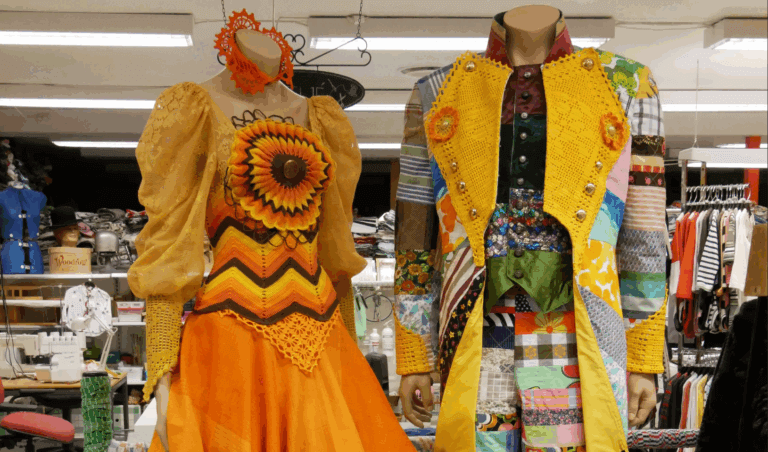
BUSINESS MODEL
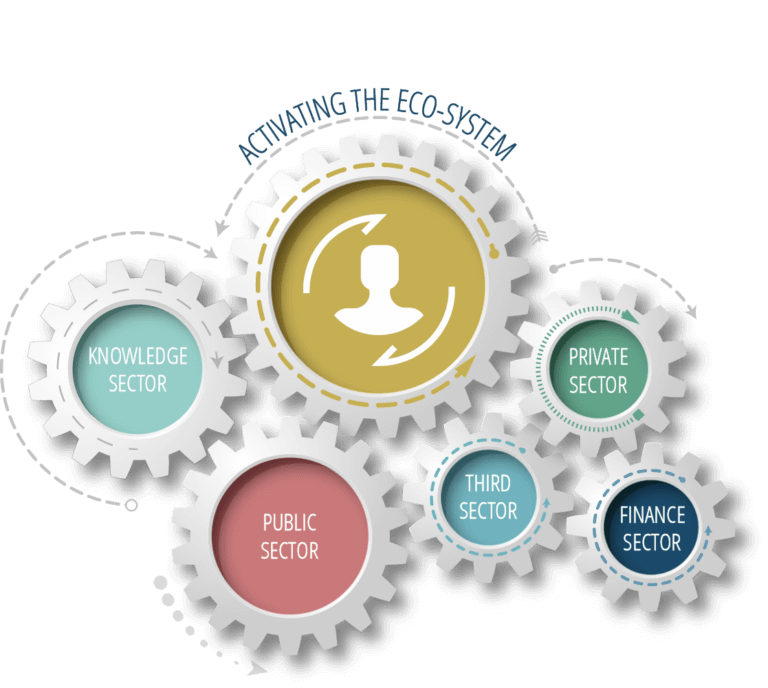
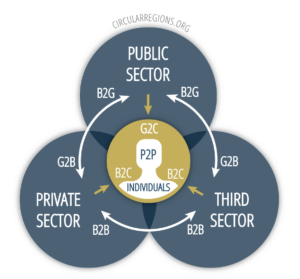
FACET & LEVEL
-
Micro - Company/Organisation
Company/Organisation
-
Nano - User, Product, Component & Material
The circularity of products, components, and materials, included in three wider systemic levels, all along the value chain and through- out their entire lifecycle
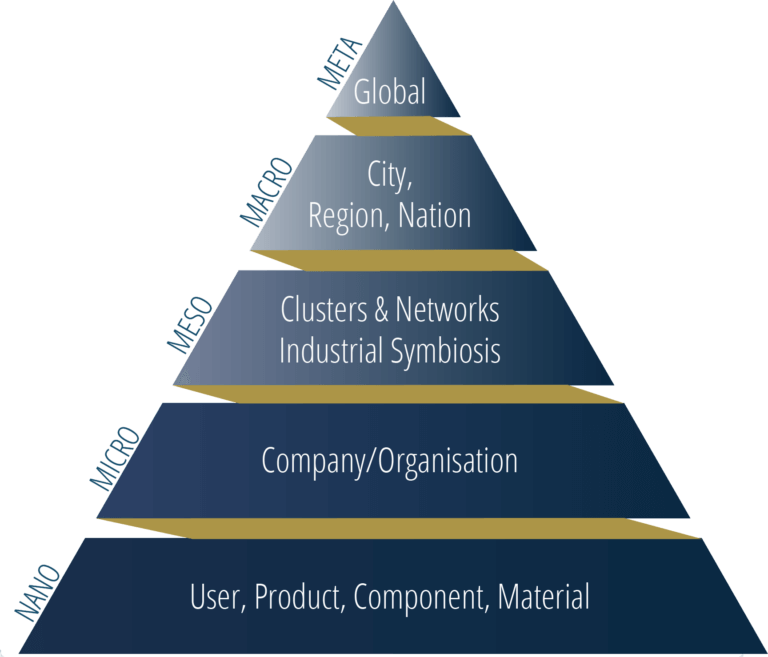
SOCIETAL READINESS LEVEL & POTENTIAL
FUTURE POTENTIAL
SOCIETAL READINESS LEVEL
CIRCULAR CYCLE PHASE
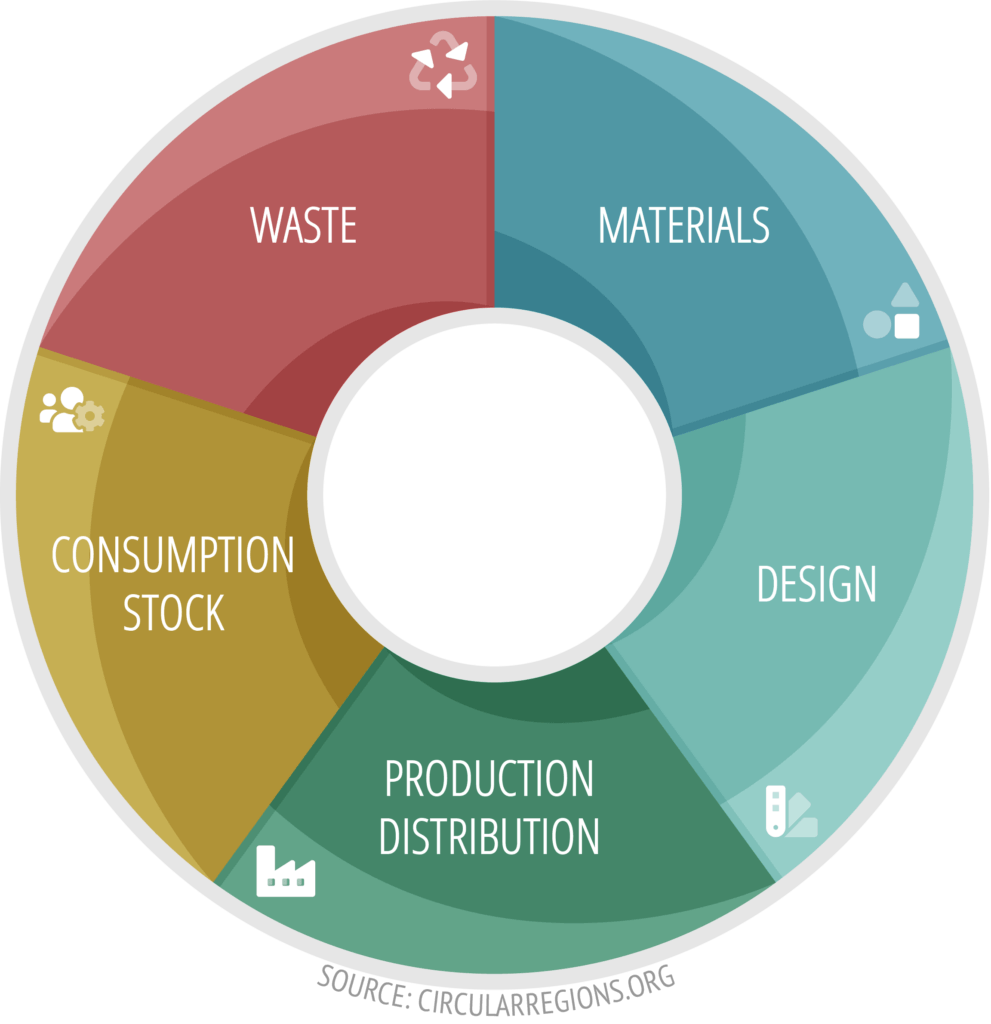
STATUS & TIMELINE
| Milestone title | Date | Content |
|---|---|---|
DESCRIPTION
Alex & Dåda is a business focused on textile reuse, upcycling and sustainable design. The company combines a conscious approach to sustainable consumption with practical production, sales and social inclusion.
Circularity and sustainability at the core
The business is dedicated to giving new life to used clothing and textiles. Materials sourced from second-hand shops, private individuals or estates are sorted and transformed into new garments or products, often with new design and function.
By reusing existing textiles, Alex & Dåda minimises the need for newly produced materials and contributes to reducing textile waste.
For materials that are in too poor condition for upcycling, a recycling route is used: fibres are sent to specialised actors that can process them into new materials, such as insulation. This underlines a circular perspective even for textiles that cannot be reused as they are.
The business has a “zero-waste” orientation, with a strictly limited residual waste stream (for example, only half a sack per month sent for recycling) and an ambition to further reduce the remaining waste.
Production, design and sales
Alex & Dåda produces new garments both for its own sales channels (webshop and physical store) and for retailers, with collections tailored to different target groups, styles or values (for example artists and performers, medieval-inspired styles or feminist-oriented collections).
Customers can also order made-to-measure garments, for example based on their own favourite items, either newly produced from recycled fabrics or through the remaking of existing garments. This offers an alternative to buying new and supports more sustainable consumption.
Children’s clothing is offered at particularly accessible prices, making it easier for families to choose reused products despite the significant amount of manual work behind each garment.
Social sustainability and inclusion
The business has a strong social dimension: Alex & Dåda engages people in work training, often through municipal labour market programmes or similar initiatives. Participants gain work experience, new skills and practical knowledge, with opportunities for future employment or self-employment.
The business has previously collaborated with initiatives such as SFI (Swedish for Immigrants) and provides a space where hands-on practice, learning and social recovery are combined with environmental sustainability.
Local and global interaction
Alex & Dåda cooperates with local associations, second-hand actors and private individuals for the collection of textiles, which means that the textile flows are often local and connected to social networks and communities.
Through sales via its webshop and through retailers in different parts of Sweden — and sometimes internationally, for example through collaborations with festivals and retailers abroad — the business contributes to the dissemination of circular fashion beyond the local area.
The business also supports regional development by participating in local projects to make the area more attractive to residents and visitors, including offering a shop, a gallery and a local meeting place for courses and creative activities.
Education and awareness-raising
Alex & Dåda organises workshops, gives lectures and takes part in initiatives to inspire people to rethink their textile consumption. The ambition is to increase awareness of the environmental and social costs of textiles and to demonstrate alternatives through reuse and redesign.
By combining practical work, design, sales and social inclusion, the business demonstrates that fashion and textiles can have a sustainable, creative and socially conscious place in society.
Alex & Dåda är en verksamhet inriktad på textil återbruk, upcycling och hållbar design. Företaget kombinerar en medveten inriktning mot hållbar konsumtion med praktisk produktion, försäljning och social inkludering.
Cirkularitet och hållbarhet i kärnan
-
Verksamheten handlar om att ge nytt liv åt begagnade kläder och textilier: material som kommer in via second hand-butiker, privatpersoner eller dödsbon sorteras och omvandlas till nya plagg eller produkter, i många fall med ny design och funktion.
-
Genom att återanvända befintliga textilier minimerar Alex & Dåda behovet av nyproducerade material och bidrar till minskat textilavfall.
-
För material som är i för dåligt skick för återanvändning skicka dessa vidare för återvinning: fibrer skickas till aktörer som kan förädla dem, exempelvis till isoleringsmaterial, detta understryker ett kretsloppsperspektiv även för icke återanvändbara textilier.
-
Verksamheten har en “zero-waste”-inriktning: från ett strikt begränsat restspill (t.ex. endast en halv säck per månad till återvinning), och ambition att minska även det spill som återstår.
Produktion, design och försäljning
-
Alex & Dåda tillverkar nya plagg både för egen försäljning (webbshop och butik) och för återförsäljare — med kollektioner anpassade till olika återförsäljares målgrupp, stil eller värderingar (t.ex. konstnärer och artister, medeltidsstil eller feministisk inriktning)
-
Kunder kan även beställa skräddarsydda plagg, som t.ex. efter mått efter sin egna favoritplagg, antingen nyproduktion i återvunnet tyg, eller också omarbetning (“re-make”) av befintliga kläder, vdetta erbjuder ett alternativ till nyköp och underlättar för hållbar konsumtion.
-
Barnkläder erbjuds till särskilt förmånliga priser, vilket underlättar för familjer att välja återbruk trots den omfattande arbetsinsatsen bakom plaggen.
Social hållbarhet och inkludering
-
Verksamheten har en stark social komponent: Alex & Dåda engagerar personer i arbetsträning, ofta via kommunala arbetsmarknadsinsatser eller liknande program. Människor kan få arbetslivserfarenhet, nya färdigheter eller praktisk kunskap, med möjlighet för nyanställning eller egen verksamhet i framtiden.
-
Verksamheten har tidigare samarbetat med t.ex. SFI, och erbjuder en plats där praktik, lärande och social återhämtning kombineras med miljömässig hållbarhet.
Lokalt och globalt samspel
-
Alex & Dåda samverkar med lokala föreningar, second hand-aktörer och privatpersoner för insamling av textilier — vilket gör att det textila flödet många gånger är lokalt och kopplat till sociala nätverk och gemenskaper.
-
Genom försäljning via webbshop och återförsäljare i olika delar av Sverige (och ibland internationellt, t.ex. vid samarbeten med festivaler och återförsäljare utomlands), bidrar verksamheten till spridning av cirkulära kläder även utanför närområdet.
-
Verksamheten stöttar också regional utveckling: genom medverkan i lokala projekt för att göra orten attraktiv för invånare och turister — inklusive att erbjuda butik, galleri och lokal mötesplats för kurser och kreativa aktiviteter.
Utbildning och medvetandegörande
-
Alex & Dåda håller workshops, föreläsningar och medverkar i initiativ för att inspirera människor att ompröva sin textilkonsumtion — med ambition att öka medvetenheten om textilens miljö- och samhällskostnader, och visa alternativ via återbruk och redesign.
-
Genom att kombinera praktik, design, försäljning och social inkludering visar verksamheten att mode och textil kan ha en hållbar, kreativ och socialt medveten plats i samhället.
IMPACT
BARRIERS
ENABLERS
MATERIALS & CERTIFICATIONS
| material input | material category input |
|---|---|
| textiles | Textile |
| material output | material category output |
|---|---|
| clothing | Textile |
TECHNOLOGY & LICENSE
- TRL 9 - FULL COMMERCIAL APPLICATION
DATA & DATA-SHARING
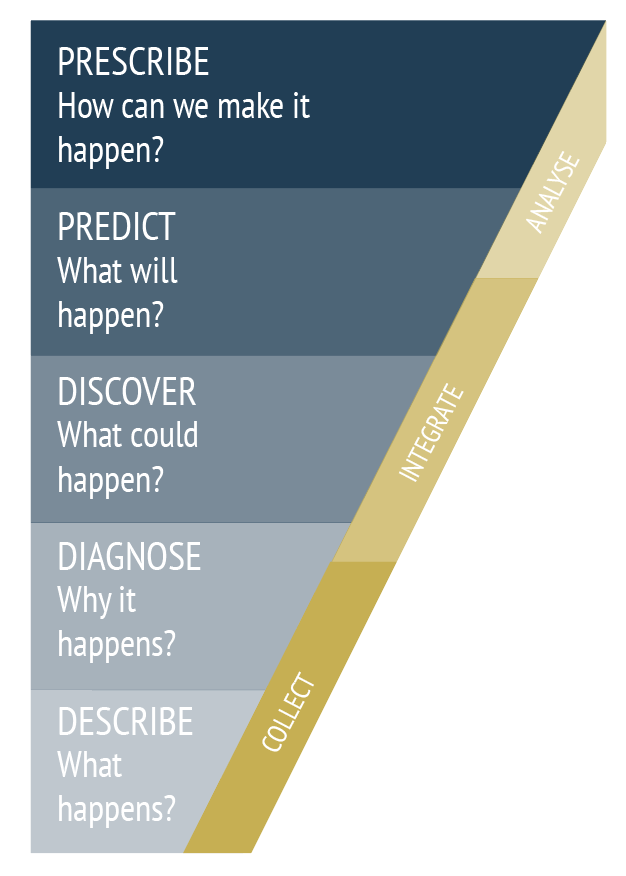
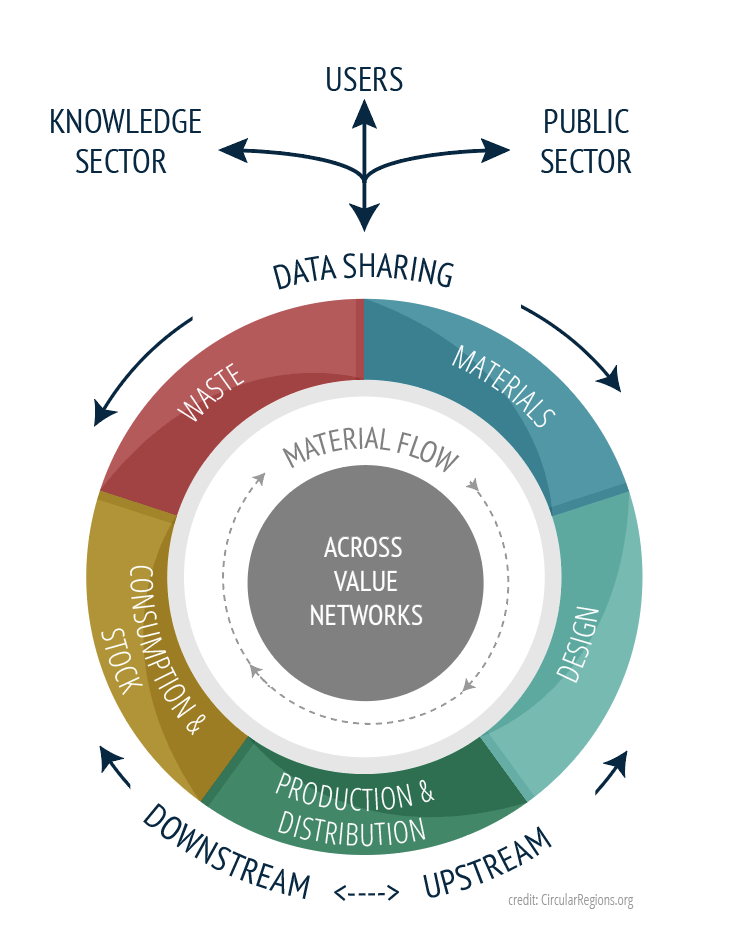
| data related to | can be used to | Unit of measure | Data-sharing |
|---|---|---|---|
- SWE-VAST2
Circular Case Studies by Circular Regions is licensed under CC BY-NC-ND 4.0

